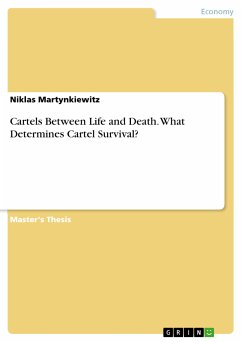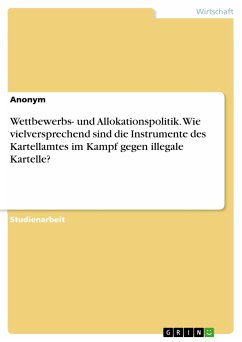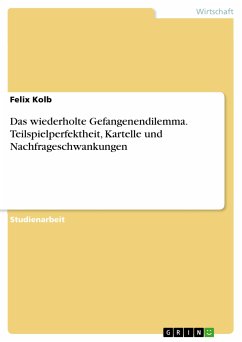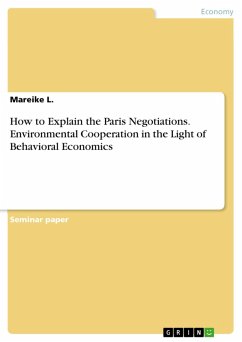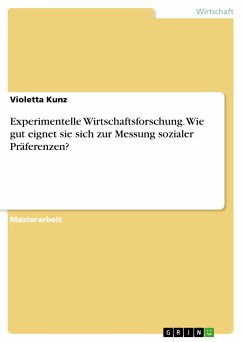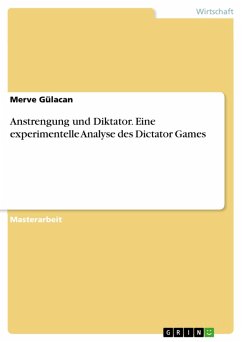Master's Thesis from the year 2018 in the subject Economy - Theory of Competition, Competition Policy, grade: 1,0, University of Heidelberg (Alfred-Weber-Institut für Wirtschaftswissenschaften), language: English, abstract: In the thesis, the goal is to examine which determinants have life-shortening or lifeprolonging effects on cartel duration by considering an up-to-date record of 123 cartel cases convicted by European Commission. The main goal is firstly to replicate the analyses by Hellwig and Hüschelrath on cartel level and secondly to extend their analyses by incorporating new covariates related to either internal enforcement methods and demand volatility. The paper at hand is methodologically in line with previous literature since it uses several Cox proportional hazard specifications and evaluates the findings to different natural death definitions. Furthermore, it also provides nonparametric Kaplan-Meier survival estimates of all categorical variables and estimates time-varying covariates by a piecewise-constant exponential PH model. Over 28 billion Euro fines imposed by the European competition authority (ECA) in 135 decisions between 1990 and 2018, of which the majority took place after the turn of the millennial, underline that the fight against cartels is far from over. The anticompetitive practices of cartels can lead to increased consumer prices and remain an important point on the agenda of antitrust authorities. As a reaction, the competition policy of the ECA has undergone several changes in the last decades, most prominently observable by the introduction of the EU corporate leniency program in 1996 and its modification ten years later. Almost all of the current cartels are detected by leniency applications of one of their members because whistle blowing policies allow cartel members to get reductions in fines when they self-report the committed infringements. Before the implementation of these policies, the most crucial threat for internal cartel stability was strategic deviations from the cartel agreement (for example price cuts) by one of the cartel members to increase short-term profits. The risk of being undercut on the one hand and the risk of leniency applications on the other hand place today's cartel firms in a "between-life-and-death" situation in which persistence of the cartel is equally likely as its breakdown.
Dieser Download kann aus rechtlichen Gründen nur mit Rechnungsadresse in A, B, BG, CY, CZ, D, DK, EW, E, FIN, F, GR, HR, H, IRL, I, LT, L, LR, M, NL, PL, P, R, S, SLO, SK ausgeliefert werden.

